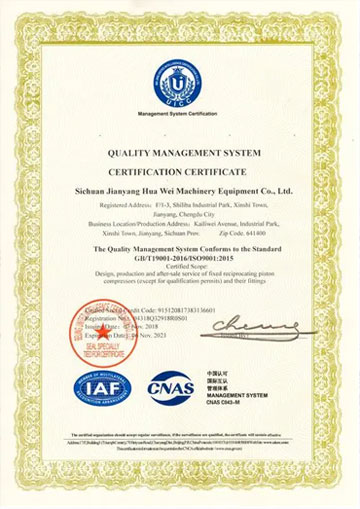

m24 stud bolt
Dec . 12, 2024 11:07 Back to list
m24 stud bolt
Understanding M24 Stud Bolts Significance, Applications, and Characteristics
Introduction
In the world of construction and engineering, the significance of fasteners cannot be overstated. Among these fasteners, the M24 stud bolt plays a vital role in ensuring structural integrity and reliability. With its specific dimensions and unique characteristics, the M24 stud bolt is a favored choice across various applications. This article will delve into the features, benefits, and typical applications of M24 stud bolts, as well as their impact on different industries.
What is an M24 Stud Bolt?
An M24 stud bolt is a type of fastener characterized by a diameter of 24 millimeters and a length that can vary based on the application. The designation M signifies that it is a metric bolt, adhering to international standards. Stud bolts, in general, are cylindrical rods with threading on both ends and a smooth shank in the center. They are commonly used with nuts or threaded inserts to securely fasten two or more components together.
Characteristics of M24 Stud Bolts
1. Material Composition M24 stud bolts are often made from various materials, including carbon steel, stainless steel, and alloy steel. The choice of material affects the bolt's performance, strength, and corrosion resistance. For instance, stainless steel stud bolts are preferred in environments susceptible to rust and corrosion.
2. Threading The threading on M24 stud bolts follows certain specifications such as metric coarse or fine threads. A coarse thread allows for quicker installation and removal, while fine threads offer better grip and tension control, making it essential to choose the appropriate threading based on the application.
3. Tensile Strength The tensile strength of an M24 stud bolt is crucial as it determines how much axial load the bolt can withstand without failing. Stud bolts can be rated with different grades, such as Grade 8.8, 10.9, or 12.9, indicating their strength capabilities. Higher-grade bolts are suited for demanding applications where greater strength is required.
4. Length Variability The length of M24 stud bolts can be customized based on specific requirements. This flexibility makes them ideal for various applications, from light structural components to heavy machinery.
Applications of M24 Stud Bolts
The versatility of M24 stud bolts leads to their widespread use across numerous industries
m24 stud bolt

1. Construction In the construction industry, M24 stud bolts are commonly used to connect structural steel components, ensuring a robust framework for buildings, bridges, and towers. Their high tensile strength allows them to withstand significant loads and ensure safety.
2. Oil and Gas Industry M24 stud bolts are frequently employed in the oil and gas sector for securing flanges and valves in pipelines. Their corrosion-resistant varieties are essential in harsh environments, where exposure to chemicals and moisture is prevalent.
3. Manufacturing In manufacturing facilities, M24 stud bolts are used to assemble machinery and equipment. Their reliability and ease of maintenance make them a preferred choice for securing moving parts and components.
4. Automotive Sector Within the automotive industry, M24 stud bolts can be found in engines, transmissions, and chassis assemblies. Their strength and durability are vital for the overall performance and safety of vehicles.
Advantages of M24 Stud Bolts
1. High Load Bearing Capacity M24 stud bolts are designed to bear heavy loads, making them suitable for demanding applications.
2. Ease of Installation The design of stud bolts allows for straightforward installation and disassembly, facilitating maintenance and repairs.
3. Versatility With options for different materials, lengths, and threading, M24 stud bolts can be tailored to meet specific project requirements.
4. Reliability The use of high-quality materials and precise manufacturing processes ensures that M24 stud bolts provide reliable performance over time.
Conclusion
M24 stud bolts are an essential component in various industries, providing strength, reliability, and versatility in fastening applications. Their unique characteristics, combined with the appropriate choice of materials and dimensions, make them invaluable for construction, manufacturing, and more. As industries continue to evolve, the demand for such fasteners will remain significant, highlighting the importance of understanding their specifications and applications for enhanced safety and efficiency in engineered systems.
Latest news
-
High-Strength Hot Dip Galvanized Bolts - Hebei Longze | Corrosion Resistance, Customization
NewsJul.30,2025
-
Hot Dip Galvanized Bolts-Hebei Longze|Corrosion Resistance&High Strength
NewsJul.30,2025
-
High-Strength Hot-Dip Galvanized Bolts-Hebei Longze|Corrosion Resistance&High Strength
NewsJul.30,2025
-
Hot Dip Galvanized Bolts-Hebei Longze|Corrosion Resistance&High Strength
NewsJul.30,2025
-
Hot Dip Galvanized Bolts - Hebei Longze | Corrosion Resistance, High Strength
NewsJul.30,2025
-
High-Strength Hot Dip Galvanized Bolts-Hebei Longze|Corrosion Resistance, Grade 8.8
NewsJul.30,2025

